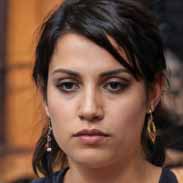Emergent Norm Theory Flashcards, test questions and answers
Discover flashcards, test exam answers, and assignments to help you learn more about Emergent Norm Theory and other subjects. Don’t miss the chance to use them for more effective college education. Use our database of questions and answers on Emergent Norm Theory and get quick solutions for your test.
What is Emergent Norm Theory?
Emergent Norm Theory is a theory of social behavior which states that social and behavioral norms emerge out of the interactions between individuals. These norms are not predetermined or set in stone, but rather they emerge through patterns of interaction among individuals. The theory suggests that this emergence is due to both individual behaviors as well as shared expectations among people.The Emergent Norm Theory was first proposed in the 1950s by sociologists George Homans and George Carkhuff. They argued that when individuals interact with one another, they develop shared expectations which lead to collective behavior. This collective behavior then becomes a norm for those involved, even if it was not initially expected or planned for by any one individual or group. This process occurs regardless of whether it is formalized into rule-like regulations or norms or if it simply emerges out of unplanned interactions.Essentially, Emergent Norm Theory suggests that norms are constantly evolving based on the continual interactions between individuals and groups within a society. It emphasizes how small changes in behavior can lead to larger changes within society over time. It is important to note, however, that emergent norms can also be challenged and changed by new ideas and interpretations from different groups of people within a society who may have alternative expectations or beliefs about what constitutes appropriate behavior in certain situations. This theory has been applied to various areas such as organizational dynamics, intergroup relations, educational settings, and public policy making processes. For example, many organizations create policies based on emergent norms so as to provide guidance for employees on how to interact with each other professionally while still allowing for creativity and innovation within the organization itself through informal group discussions about workplace issues such as diversity initiatives or strategic planning efforts. Additionally , research has shown that emergent norms can help reduce conflict between groups since their development helps ensure mutual understanding between members from different backgrounds who may otherwise struggle with communication difficulties due to cultural differences. In conclusion , Emergent Norm Theory provides an important framework for understanding social dynamics and how individual actions influence larger collective behaviors over time. Although its principles suggest an underlying structure which influences our behaviors , this does not mean that change cannot occur when different interpretations of what constitutes appropriate conduct arise. Instead , it encourages us to constantly evaluate our own actions in relation to others so we can strive towards creating more harmonious societies where everyone’s perspectives are respected regardless of their background .











